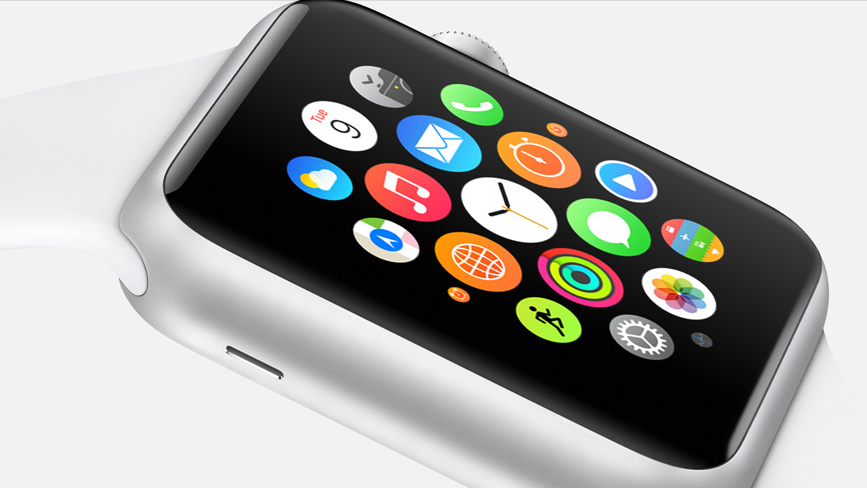Why have apps got so boring?
Apple's tough App Review process has resulted in fewer daring developments

Sign up for breaking news, reviews, opinion, top tech deals, and more.
You are now subscribed
Your newsletter sign-up was successful
The App Store is doomed.
Actually, it probably really, really isn't, but I needed a nice pithy line to draw you in with.
There is a problem though, and it's that the pace of innovation has slowed for apps in Apple's shop for iPhone and iPad software. Every week I still see games that intrigue and delight, but apps – straight apps – don't often surprise me these days. Why?
Partly because 'it's all been done'. I don't mean this literally, of course; I'm not suggesting every piece of software that could ever be written has been. But I do think that enough big ideas have been checked off that there's less obvious opportunity to wow the public with some astonishing new app.
That is at least until big new services of the order of Facebook or Uber come along, and they're less to do with the app itself than they are the idea and infrastructure behind it.
Apple and its fans had been in the habit of pointing to the sheer number of apps in the App Store as evidence of its supremacy, and this actually had some merit. Nobody's going to install and use a million apps, but it means that for a few million people they are more likely to find the one app that will make the iPhone truly valuable to them.
If we're honest with ourselves, though, the number of third-party apps a smartphone platform has to have for it to be viable is shockingly low. For most people, I suspect, having Twitter and Facebook, and maybe WhatsApp and Instagram, would be enough. This probably isn't true of you simply by virtue of the fact that you're reading this on TechRadar, but my gut tells me it's true for the wider populace.
Sign up for breaking news, reviews, opinion, top tech deals, and more.
Much more importantly, however, I think the pace of innovation has slowed because developers are increasingly reluctant to take risks, and it's only when you take risks that you create truly astonishing things.
Let me be very clear here: I'm not picking on developers. This is Apple's fault.
The issue is one that's dogged the App Store almost since it opened in 2008: inconsistency in applying the review guidelines. The latest casualty is James Thomson, a Scottish developer who made the hugely well-received calculator app PCalc.
The latest version of PCalc adds a widget version to take advantage of iOS 8's new ability to add functionality to the Notification Center. After the app was approved and on sale, Apple contacted James to tell him widgets mustn't perform calculations and so he could either remove that ability or remove the app from the Store altogether.
The great irony here is not only that Apple had approved it, but that at the same time as it was telling James he would have to remove PCalc, Apple was actually featuring it in the widgets section of a 'Great apps for iOS 8' showcase on the App Store.
Apple then did one further u-turn and told James that it would allow the app after all. After so many 180° volt-faces, I'm feeling rather dizzy, and if I was a developer I'd be adding nausea and disorientation to the list of symptoms too.
In itself, this is no more than a wry anecdote (unless you're James Thomson) but it's emblematic of a systemic problem with the App Store, and while it might seem like an esoteric problem that has little impact on the vast majority of iPhone users, it's not hard to see how it could have a subtle but wildly fundamental and detrimental effect on the App Store.
Developer David Barnard said it well in his letter to Apple a week ago: "So many decisions I make end up being filtered through whether or not I think something might get rejected. […] If a significant number of people involved in iOS development start to fear App Review the way I have the past couple years, that changes the game. And I'm not just talking about indie developers like me.
"Contractors may steer their clients away from taking risks. Project managers at companies like Facebook and Pinterest may think twice before pitching a new feature. Venture capitalists may pass on a fledgling company because its product is too dependent on an iOS feature that might get rejected."
So no, the App Store isn't doomed, but it doesn't take much imagination to conjure up a future where we don't get many of the cool things we might otherwise have got – not because Apple explicitly disallows them but because people just can't tell ahead of time if they will be rejected so don't want to risk the time and money it would take to create them.
And if you think that's a problem now, imagine how this might stifle innovation for the Apple Watch at launch, just at the time it will need it most.
- Hark back to Apple's good old days, with CEO Tim Cook's explanation of why they killed the Classic.